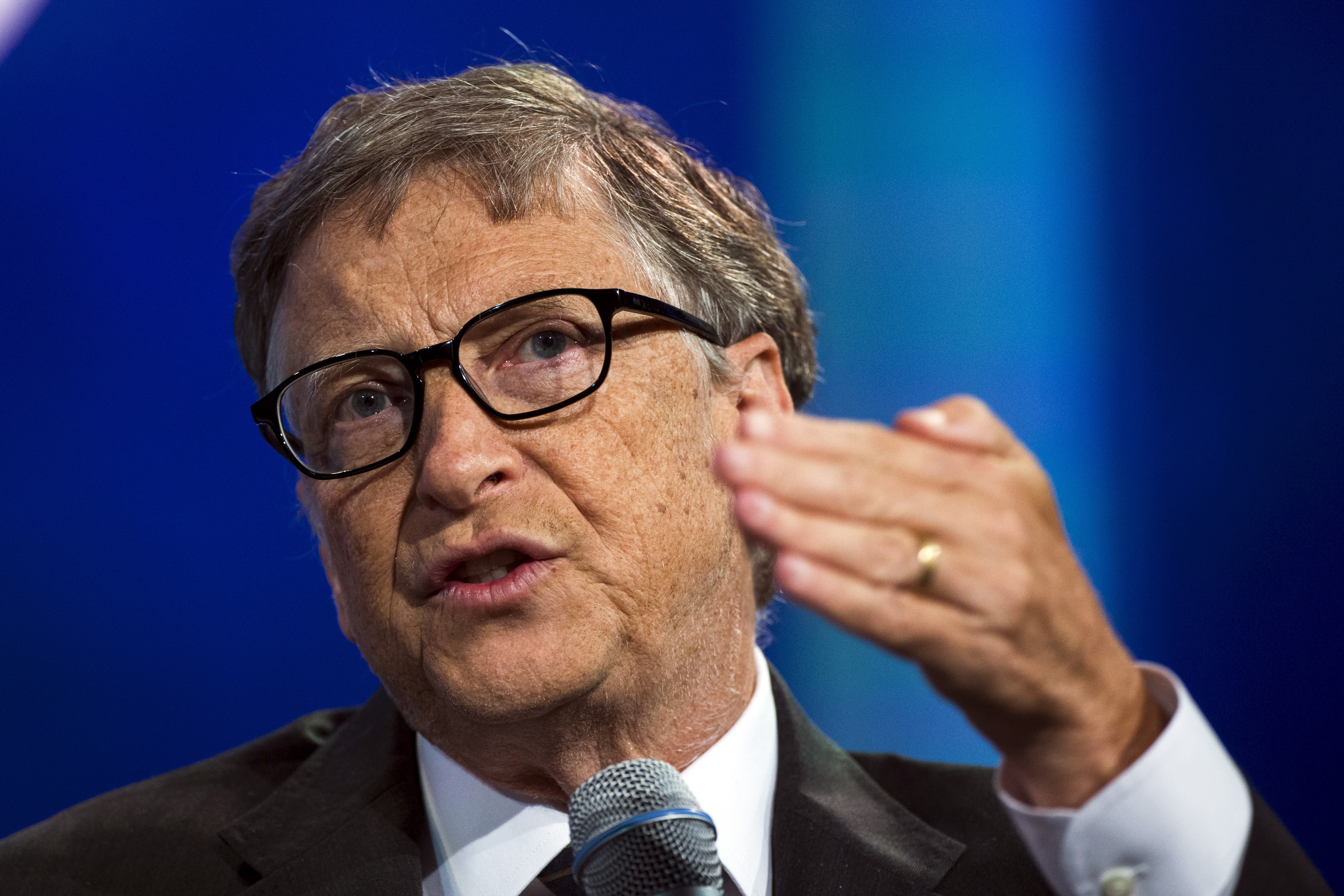Bill Gates is not the worst billionaire in the world. (That honor belongs to this guy. Or this guy. Or this guy.) These days, he’s known as much for his philanthropy as for his little computer company, and the Gates Foundation has given billions to fight disease and poverty, and fund education. Now, according to an interview in the Atlantic, Gates is taking on climate change. But that doesn’t mean he’s not willing to profit from it. The Gates Foundation, according to the most recent tax filings, has $1.4 billion invested in fossil fuel companies.
The Gates Foundation has long been a target for divestment activists, and the Guardian launched a campaign calling on the foundation to take its money out of fossil fuel companies this spring. Gates’ response? Nope.
“If you think divestment alone is a solution,” he said in the interview with the Atlantic, “I worry you’re taking whatever desire people have to solve this problem and kind of using up their idealism and energy on something that won’t emit less carbon — because only a few people in society are the owners of the equity of coal or oil companies. As long as there’s no carbon tax and that stuff is legal, everybody should be able to drive around.”
Instead, Gates thinks the solution lies in technology. The Gates Foundation announced a $2 billion investment in renewable energy technology over the next five years, and is calling on the U.S. government to triple its budget for energy research and development to $18 billion. But why not divestment as well? Isn’t this still a useful tool, or is it a “false solution,” as Gates called it in the Atlantic?
“When Bill and Melinda move around pieces of their portfolio, people stand up and take notice,” Alex Lenferna, an organizer at Seattle-based Gates Divest, wrote in an email. There’s precedent for this thinking: A 1999 study of South Africa during apartheid shows that while divestment had little actual financial impact on South African companies, it was important anyway. Divestment increased awareness of atrocities in South Africa, and popular opposition was a large factor in the apartheid government’s eventual decline.
Another later divestment campaign targeted Big Tobacco. “The tobacco divestment movement borrowed heavily from the apartheid movement,” wrote Rebecca Leber in The New Republic, “but the campaigns originated in distinct ways. Public health experts and doctors led the calls to divest pensions and university funds from Big Tobacco. Both are considered a success — though not because they financially impacted their targets. They didn’t. Financial hardship was never the goal; the goal was political action.”
That’s the thing about divestment — it’s not just about the money, it’s about the message. Which Gates, it seems, doesn’t quite get.



